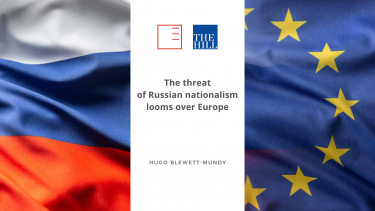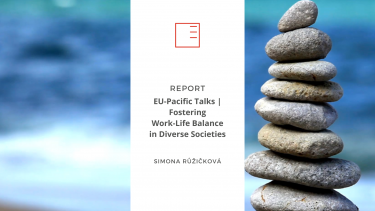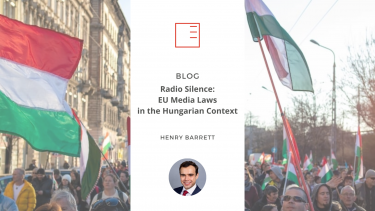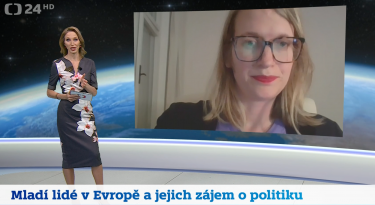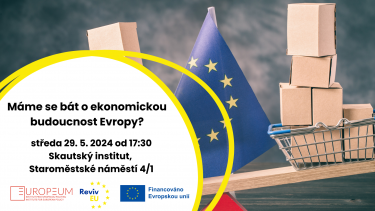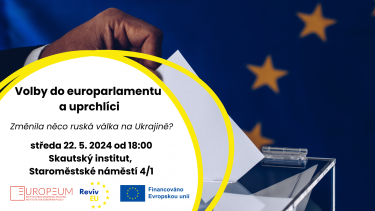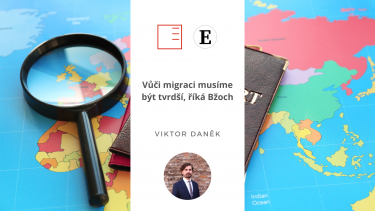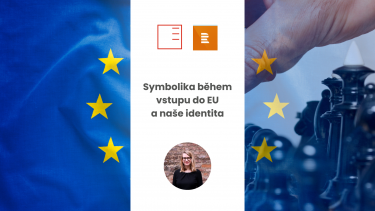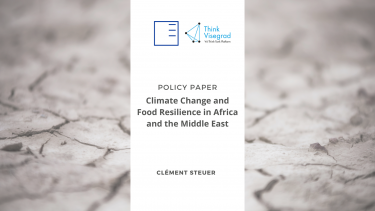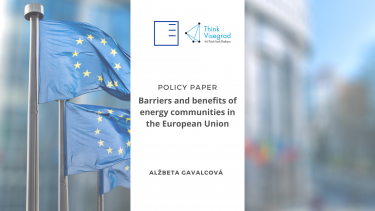The Hill | The threat of Russian nationalism looms over Europe
The threat of Russian nationalism poses a serious danger to Europe, as emphasized by the EU's High Representative for Foreign Affairs and Security Policy Josep Borrell in his speech in April. Russia is attempting to reassert its influence, particularly through its war against Ukraine, which undermines European security. What impact does the reemergence of Russian nationalism, supported by China, have on European security, and how should the West respond to this geopolitical reality? In his commentary for the American news website The Hill, Hugo Blewett-Mundy, an external collaborator and research fellow at EUROPEUM Institute, addresses this topic.
Show moreREPORT | EU-Pacific Talks: Fostering Work-Life Balance in Diverse Societies
Another in the series of EU-Pacific talks dealt with fostering work-life balance in diverse societies. The debate focused on examining current demographic trends and their social consequences in high-income countries in Europe and Southeast Asia. The discussion also touched on social systems, flexible job opportunities, and the pressures women face when balancing work and private life.
Show moreBLOG | Radio Silence: EU Media Laws in the Hungarian Context
The European Union has passed major legislation to try and secure media freedom and independence in recent years. However, for the state of media pluralism in certain Member States, these efforts have come too late. In the Hungarian context, a pro-ruling party media ecosystem stands well-entrenched in the private and public media sector. Writes our researcher, Henry Barrett, a Fulbright-Schuman Grantee.
Show moreČT24 | Is there growing interest among young people in European politics?
According to the Eurobarometer survey, 91% of young people aged 15-24 believe that participation in European elections is important. How does this attitude translate into practice? Does this mean that there will be an increase in voter turnout among young people? What advantages and opportunities does the European Union offer to younger citizens? Can Brussels effectively explain the benefits of EU membership to young people? These are the questions addressed by Klára Votavová, a research fellow at EUROPEUM Institute, for the Horizont programme on Czech TV.
Show moreRevivEU | Should we fear for the economic future of Europe?
We invite you to a public podcast recording focusing on the discussion of the impacts of the COVID-19 pandemic on European industrial policy and its potential consequences for the Czech economy and society. We will discuss the new technological dynamics resulting from the pandemic and explore ways in which the European Union can respond to technological competition with the USA and China.
Show moreRevivEU | Did the Russian war in Ukraine change anything?
We invite you to a public podcast recording focusing on the discussion of changes in the Czech approach to refugees due to the Russian war in Ukraine. We will delve into shifts in Czech solidarity towards refugees and also discuss the new migration pact, its content, and significance.
Show moreEkonomický deník | Migration problems are effectively eliminated by the new pact
The migration pact recently approved by the European Parliament brings a number of effective steps to prevent illegal migration, but it is certainly not a perfect anti-immigration tool, said Jaroslav Bžoch, candidate for MEP and vice-chair of the Foreign Affairs Committee and the European Affairs Committee of the Chamber of Deputies. Viktor Daněk, Deputy Director of EUROPEUM Institute, commented on the functioning of the EU Migration Pact and the opinion of the Czechs on this pact for Ekonomický deník.
Show moreChyba systému | Symbolism during EU accession and our identity in the EU
This year, the Czech Republic celebrates 20 years since its accession to the European Union. Klára Votavová, a researcher from EUROPEUM Institute, points out in the political podcast "Chyba systému" by Czech Radio, that the accession wasn't as carefully considered as it might seem. And the idea of returning to Europe may have been overly optimistic. This is now reflected in the attitudes of Czechs towards the EU.
Show morePolicy Paper | Climate Change and Food Resilience in Africa and the Middle East
Russia's war in Ukraine has destabilised supply chains and strained food systems in Africa and the Middle East, highlighting their vulnerability and the need to increase their resilience. Writes Clément Steuer, Senior Research Fellow at the Institute of International Relations Prague.
Show morePolicy Paper | Barriers and benefits of energy communities in the European Union
Energy communities are an effective means to decentralize and renew our energy systems with sustainable solutions as they are usually based on renewable energy. They have already started emerging in 1970´s, yet there has been a significant increase in their development only in recent years, also in terms of their introduction into the EU legislation. Especially in Western and Northern European countries the concept already enjoys vast popularity. On the other hand, in Central and Eastern European countries (further referred to as CEE) energy communities are only beginning to emerge. The policy brief (based on literature and interviews with various stakeholders ) examines the benefits energy communities may bring, and more importantly, the main obstacles remaining in their way for greater evolution in the CEE region – and especially Visegrad countries (V4). As these initiatives progress, sharing the best practices will ensure the success of the community energy in the energy transition. Writes Alžbeta Gavalcová.
Show moreStaroměstské náměstí 4/1
Prague 1 - Staré Město
110 00
tel.: +420 212 246 552
email: europeum@europeum.org
https://www.europeum.org
